Over the years, probably the one of the biggest concerns I’ve heard from our readers sounds something like this: “I want to make healthy changes, but there’s so much information out there. How do I know where to start? Information overload often leaves me scratching my head, and then I just don’t start anything.”
Here’s the key: just do something.
I’ve never made a massive overhaul to my diet. I’ve made healthy changes slowly over time—one step at a time.
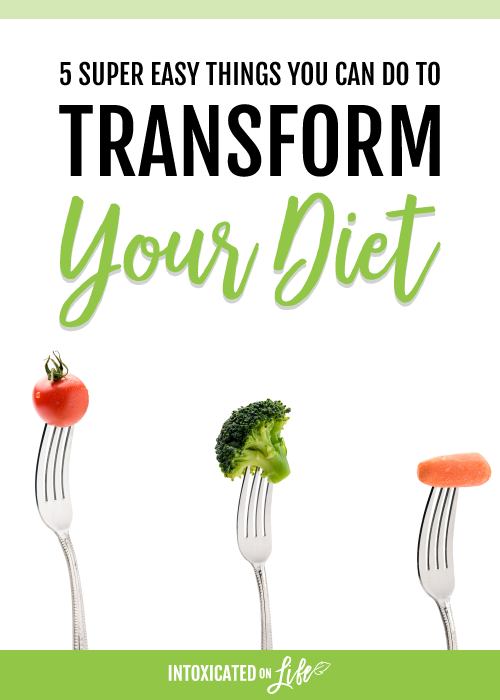
Below are some of the changes I made to my diet early on—again, not all at once, but bit by bit.
Why these things? One of the things I always recommend to people who are wanting to change their diet is not to start with the stuff that sounds incredibly difficult and insurmountable, but to start with things that will make their tastebuds tingle. Yes, you can make changes that are not only healthy, but you’ll actually enjoy!
1. Ditch the grocery store eggs. Begin eating farm-fresh eggs.
Beautiful deep yellow yolks. Egg shells in various hues of brown, tan, and green. Rich and tasty.
And farm fresh eggs aren’t just a delight to the senses; they are great for our bodies. Eggs are a fantastic source of natural fat and protein. Farm fresh eggs likely have…
- 2x as many omega-3 fatty acids
- 2/3 more vitamin A
- 3 times more vitamin E
- 7 times more beta carotene
- 4-6 time more vitamin D
Read more about how farm-fresh eggs are superior to anemic grocery store eggs and where to find farm-fresh eggs.
2. Use real sea salt and get rid of the chemically processed stuff.
No, no, no—don’t cut down on your salt consumption, just switch to using real and delicious salt. Real salt is good for you; it’s the chemically processed stuff that causes problems.
Is it hard to believe that they’re really that much different? Standard table salt is heated, stripped of its minerals, bleached, iodized, and then to add insult to injury has corn sugar added to it (yeah, weird… sugar in your salt). If you’re interested, you can read more about how table salt and real sea salt are different.
One of our favorite brands of salt is Real Salt from Redmond Trading Company. They also have a line of specialty salts (garlic, onion, and seasoning salt) that are out of this world! You will not want to go back to using your grocery store salts after trying these. If you’re ready to make the salt change, go and buy one Redmond Trading’s Ultimate Salt Variety Packs to try their Real Salt along with all of their seasoning salts plus you’ll get a pouch of their kosher salt free.
3. Eat fat.
Are you still eating bland canola oil and fake butter spread? Blech. Do your tastebuds—and your whole body—a favor and switch to fats that will nourish your body and mind (did you know most of your brain is made up of fat). Begin eating real fats and skip the processed and chemical fats. Focus on eating…
- Butter from grass-fed cows
- Coconut Oil
- Palm Oil
- Lard from pastured pigs
- Tallow from grass-fed cows
- Olive Oil
- Macadamia Nut Oil
- Flaxseed Oil
Here is a handy dandy list that will help you navigate what fats to eat and what fats to avoid.
Whatever you do, make sure you’re eating plenty of fats and don’t just cut them out entirely. Fat won’t make you fat.
4. Buy (some) organic produce.
Organic produce can be ex-pen-sive. I know this. And, I also know how important it is to stick to a budget. Ask anyone who knows me—I hate debt.
But, I’ve learned an awfully lot about GMOs and conventional versus organic produce. Here’s a secret (between me, you, and the other millions of people on the Internet): you don’t have to buy all organic produce.
Some conventionally raised produce is just as good as organic produce. Throw the organic bananas back on the shelf and save your money. It really isn’t worth the extra expense. But, there are some fruits and veggies that are worth the extra expense (they’re called the “dirty dozen”). We’ve got a list of the dirty dozen and some tips for helping you find affordably priced organic produce.
5. Cut back on wheat.
Or…completely eliminate it. I couldn’t really say you should completely eliminate it because these are supposed to be “super easy things” you can do for your health. I’ll be the first to admit that completely eliminating wheat is most definitively not super easy. But, there are a number of reasons you should consider eliminating or at least cutting back on wheat.
If you haven’t tried a gluten-free diet, it is well worth a try. Different people have different symptoms to gluten sensitivity. Pay attention to your body.
There are a number of “anti-nutrients” in wheat. Gluten causes zonulin to be released in your body, leading to a more permeable intestinal wall. Lectin, wheat’s built-in pesticide, can also cause leaky gut. Phytates bind to minerals you consume so they can’t can’t be properly absorbed into your body.
We have a number of articles you can mine on our site for information on wheat, along with gluten-free recipes, and we have our book Weeding out Wheat: A Simple, Scientific, Faith-Based Guide available.
What changes are you making to your diet this year? Do you think they’ll be sustainable changes? Let’s make the new year a healthy one!


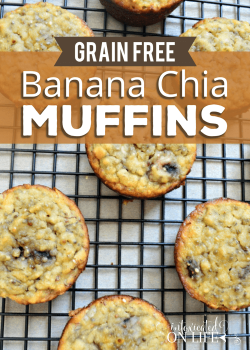
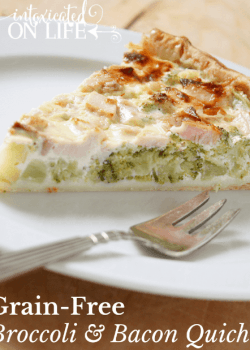
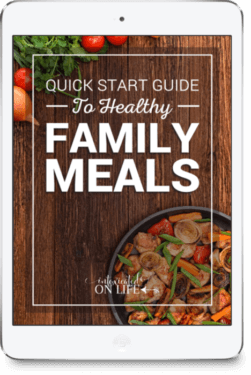
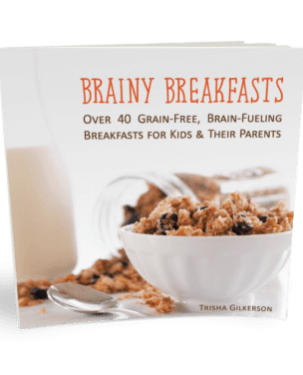
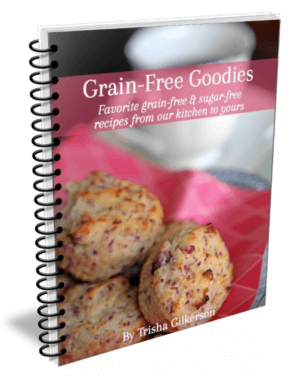
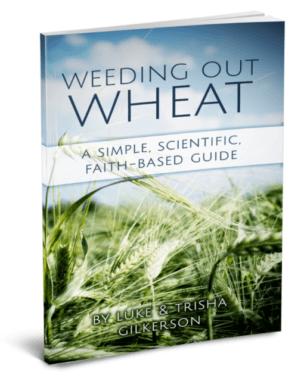
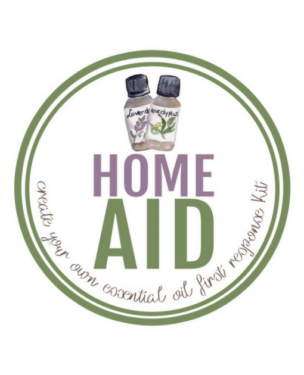

In December, due to health issues, I cut chocolate, cofee and tea. That has been interesting.
But It was do-able. I have cut wheat in the past, ( and then added it back). I am cutting wheat,
again , starting today! Farm fresh eggs have a better EGG flavor.
The hardest part about cutting things you are use to having, is the thoughtless ways they sneak into your diet. It took me almost 3 weeks before I could honestly say I cut all the things necessary ( citrus, tomato, coffee, tea and things witha high acid content) My symptoms have disappeared, and I have the hope that the worthwile things I have given up, may be enjoyed in small quantities.
Yes, some foods are harder than others. Wheat can be a difficult one, but we completely cut corn out for a while and that was crazy difficult!
Best of luck on your move to cutting wheat… it is not an easy task, but worthwhile (at least for our family). And yes… the farm fresh eggs are awesome :). It’s certainly not a sacrifice!
I am going to cut out wheat and sugar for Lent and see how it goes. For me it is much easier to forego things in Lent than right after New Year. I think partially because we have many birthdays in our family in Jan. and FEb. Plus even though I am not Catholic I like the concept of the church calendar and seasons.
The very beginning of the year is tough for me to make too many big changes too – my birthday and then our anniversary both in January! February is just easier :). I’ll look forward to hearing hot the cutting wheat and sugar goes. Those are two BIG changes to make for sure!